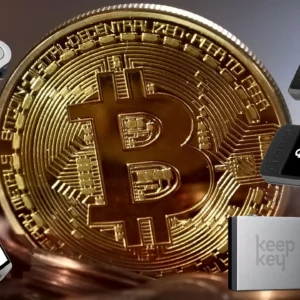The world of cryptocurrency has undergone significant transformations over the last decade, and Bitcoin remains at the center of this revolutionary shift.
Once dismissed as a speculative fad, Bitcoin is now recognized as a legitimate asset class by institutions, governments, and individuals alike. What’s driving this change? One critical factor is the increasing political support for Bitcoin and its use as a financial reserve. This backing has been instrumental in fueling global interest in Bitcoin reserves.

The Changing Landscape of Bitcoin Reserves
Bitcoin, originally introduced as a decentralized alternative to traditional currencies, has evolved into a store of value and a hedge against inflation. Over the past few years, the narrative surrounding Bitcoin has shifted from being an experimental digital currency to becoming a viable asset for inclusion in financial reserves. This evolution has been propelled by macroeconomic uncertainties, such as inflationary pressures, currency devaluation, and geopolitical instability.
In recent years, several governments and central banks have started to take Bitcoin seriously as a potential addition to their reserves. What’s noteworthy is how political support has amplified this shift. El Salvador, for instance, made history in 2021 by becoming the first country to adopt Bitcoin as legal tender. The country’s President, Nayib Bukele, justified the decision by arguing that Bitcoin adoption would promote financial inclusion and reduce dependency on the US dollar.
Such bold moves highlight how political will is instrumental in driving global interest in Bitcoin reserves. Governments are beginning to view Bitcoin not only as a hedge against economic uncertainty but also as a tool to challenge traditional financial systems. This embrace of Bitcoin is fueling a surge in interest from both state and non-state actors, marking a critical turning point in its role as a global reserve asset.
How Political Support is Shaping Bitcoin’s Legitimacy
For years, Bitcoin faced skepticism from traditional financial institutions and regulatory bodies. Concerns about volatility, lack of regulation, and potential misuse for illicit activities dominated the discourse. However, political support for Bitcoin has started to reshape these perceptions. Politicians, policymakers, and even central banks are beginning to recognize Bitcoin’s potential as a legitimate asset class.
One of the most significant impacts of the support is the legitimization of Bitcoin as a reserve asset. Countries with struggling economies, such as Argentina and Turkey, have seen political leaders explore Bitcoin as a way to stabilize their finances. For example, when national currencies face devaluation, Bitcoin’s decentralized nature offers a safe haven for governments to preserve value.
Moreover, the endorsements are also fostering institutional interest in Bitcoin. When governments show support for Bitcoin, they signal confidence in its potential, encouraging corporations and investors to follow suit. This ripple effect further fuels global interest in Bitcoin reserves, as companies begin to treat Bitcoin as a treasury asset.
Additionally, political support is driving regulatory clarity, which is essential for widespread Bitcoin adoption. In the United States, discussions about Bitcoin’s role in the financial system have gained traction at the highest levels of government. Lawmakers are debating how to regulate cryptocurrencies in ways that protect investors while promoting innovation. Such developments underscore the pivotal role political support plays in shaping Bitcoin’s trajectory and its integration into global reserves.
The Geopolitical Implications of Bitcoin Reserves
The surge in political support for Bitcoin is not only reshaping national economies but also transforming geopolitical dynamics. Countries with significant Bitcoin reserves could potentially leverage this asset to enhance their global standing. As the world transitions into a more digitized economy, Bitcoin is becoming a strategic asset that nations can use to assert their independence from traditional financial systems dominated by the US dollar.
Take the case of developing nations: For countries like Venezuela and Zimbabwe, which have faced years of hyperinflation, Bitcoin offers a way to sidestep reliance on international aid or external loans. By holding Bitcoin reserves, these nations can protect themselves against the volatility of fiat currencies and reduce their dependence on foreign economic policies.
At the same time, the rise of Bitcoin reserves among nation-states has sparked competition. As more countries adopt Bitcoin-friendly policies, those that fail to do so risk falling behind in the global financial race. Nations with forward-thinking political leadership are seizing the opportunity to capitalize on Bitcoin’s potential, while others remain skeptical and risk losing out on the benefits.
This geopolitical dimension of Bitcoin reserves is a testament to how political support is fueling global interest. Governments now view Bitcoin not just as a financial tool but as a means to gain an edge in the increasingly digital global economy.
Institutional and Public Adoption: A Ripple Effect of Political Support
Political support for Bitcoin doesn’t just influence governments—it has a cascading effect on both institutional and public adoption. As politicians and lawmakers advocate for Bitcoin-friendly policies, they send a clear signal to corporations and retail investors that Bitcoin is a trustworthy asset.
Large financial institutions, including banks and hedge funds, are beginning to incorporate Bitcoin into their portfolios. Political endorsements, coupled with regulatory advancements, have alleviated fears of legal repercussions for holding or transacting in Bitcoin. This institutional adoption further bolsters Bitcoin’s credibility as a global reserve asset.
Meanwhile, public adoption of Bitcoin is also on the rise. In countries where governments have shown political support for Bitcoin, citizens are more likely to trust and use the cryptocurrency. For instance, El Salvador’s decision to embrace Bitcoin has led to increased adoption among its population, with many using it for daily transactions and savings. The country’s government even launched a Bitcoin-backed bond, demonstrating how political backing can fuel both public and private interest in Bitcoin reserves.
The combination of institutional and public adoption creates a feedback loop: Political support encourages adoption, which in turn reinforces Bitcoin’s legitimacy as a global reserve asset. This cycle underscores the central role of political support in driving the surge of interest in Bitcoin.
The Challenges Ahead
Despite the surge in global interest, Bitcoin’s integration into reserves faces significant challenges. Critics argue that Bitcoin’s volatility makes it unsuitable as a reserve asset. While political support has helped mitigate some of these concerns, it hasn’t entirely eliminated them. Central banks, which prioritize stability, remain cautious about holding Bitcoin in their reserves.
Another challenge is the environmental impact of Bitcoin mining. Policymakers who support Bitcoin must address these concerns to ensure that Bitcoin adoption aligns with global sustainability goals. Striking a balance between promoting Bitcoin reserves and addressing its carbon footprint will be crucial for maintaining political and public support.
Finally, geopolitical tensions could also pose a challenge. As more countries adopt Bitcoin reserves, competition for dominance in the crypto space could lead to conflicts over regulation, taxation, and mining. Political leaders will need to navigate these challenges carefully to ensure that Bitcoin’s growth as a global reserve asset remains sustainable.
Conclusion
The surge in political support for Bitcoin is undeniably fueling global interest in its potential as a reserve asset. From national governments to private institutions, the embrace of Bitcoin is transforming its role in the global financial system. Political leaders are championing Bitcoin as a tool for financial inclusion, economic stability, and geopolitical leverage, driving its adoption on an unprecedented scale.
As we’ve explored, the integration of Bitcoin into reserves is not without challenges, but the momentum is undeniable. The combination of political backing, regulatory clarity, and growing adoption has set the stage for Bitcoin to become a key player in the future of global finance.
What do you think about the role of political support in driving Bitcoin adoption? Could Bitcoin truly become a staple of global reserves, or are the challenges too great? Share your thoughts in the comments below—we’d love to hear your perspective!






